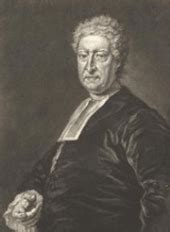A Quote by John Flavel
Ah, did we but rightly understand what the demerit of sin is, we would rather admire the bounty of God than complain of the straithandedness of Providence. And if we did but consider that there lies upon God no obligation of justice or gratitud to reward any of our duties, it would cure our murmurs (Gen. 32:10).
Related Quotes
Suppose, however, that God did give this law to the Jews, and did tell them that whenever a man preached a heresy, or proposed to worship any other God that they should kill him; and suppose that afterward this same God took upon himself flesh, and came to this very chosen people and taught a different religion, and that thereupon the Jews crucified him; I ask you, did he not reap exactly what he had sown? What right would this god have to complain of a crucifixion suffered in accordance with his own command?
Our first problem is that our attitude towards sin is more self-centred than God-centred. We are more concerned about our own "Victory" over sin than we are about the fact that our sin grieve the heart of God. We cannot tolerate failure in our struggle with sin chiefly because we are success oriented, not because we know it is offensive to God.
History, when rightly written, is but a record of providence; and he who would read history rightly, must read it with his eyes constantly fixed on the hand of God. This statement of a nineteenth-century historian sums up the responsibility of the Christian teacher of history, for he who would teach history or any subject matter rightly, must teach it with his eyes constantly fixed on the hand of God.
What is sin? It is the glory of God not honored. The holiness of God not reverenced. The greatness of God not admired. The power of God not praised. The truth of God not sought. The wisdom of God not esteemed. The beauty of God not treasured. The goodness of God not savored. The faithfulness of God not trusted. The commandments of God not obeyed. The justice of God not respected. The wrath of God not feared. The grace of God not cherished. The presence of God not prized. The person of God not loved. That is sin.
You are not an accident. Your parents may not have planned you, but God did. He wanted you alive and created you for a purpose. Focusing on yourself will never reveal your real purpose. You were made by God and for God, and until you understand that, life will never make sense. Only in God do we discover our origin, our identity, our meaning, our purpose, our significance and our destiny.
You must realize that it is the ordinary way of God's dealings with us that our ideas do not work out speedily and efficiently as we would like them to. The reason for this is not only the loving wisdom of God, but also the fact that our acts have to fit into a great complex pattern that we cannot possibly understand. I have learned over the years that Providence is always a whole lot wiser than any of us, and that there are always not only good reasons, but the very best reasons for the delays and blocks that often seem to us so frustrating and absurd.
Many of our attempts to understand Christian faith have only cheapened it. I can no more understand the totality of God than the pancake I made for breakfast understands the complexity of me. The little we do understand, that grain of sand our minds are capable of grasping, those ideas such as God is good, God feels, God loves, God knows all, are enough to keep our hearts dwelling on His majesty and otherness forever.
Isaiah 55 provides an entirely different framework for thinking about God's justice, because it suggests that we have it backward - the mystery lies not in God's unfathomable wrath but in his unfathomable mercy. God's ways are higher than our ways because his capacity to love is infinitely greater than our own. Despite all that we do to alienate ourselves from God, all that we do to insult and disobey, God abundantly pardons again and again.





































